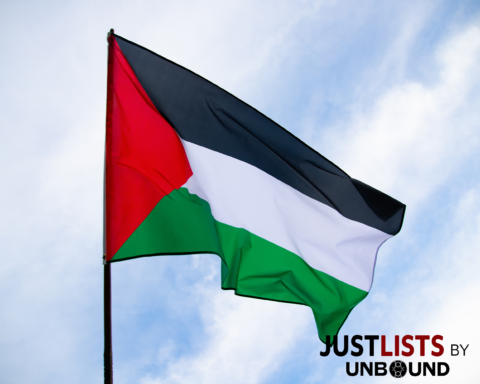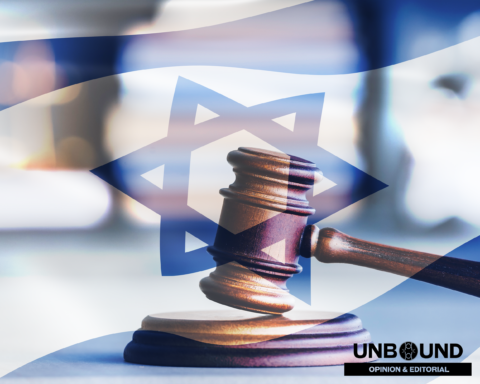
For more than a hundred years now, the Presbyterian Church (U.S.A.) and its antecedent organizations have called for the use of economic pressures to challenge injustice, oppression, and other situations which they viewed as morally wrong. Examples include a call to the people of the church to “keep themselves financially … ‘separate and apart’ from the liquor traffic” (1910); a call to the U.S. Congress to adopt legislation which “forbids the shipments of Child Labor goods in interstate commerce” (1937); a call to the Board of National Mission of the church to “refrain from investing in securities of any company that has a…policy and/or practice of discriminatory hiring based on race” (1964); and a call to “endorse and support the national boycott of Taco Bell restaurants” (2002). [1]
As a part of this long-term record of engagement, the Presbyterian Church has wrestled for decades with ways in which we seek to respond faithfully to the conflict between Israel and Palestine. Since 1949, our church has regularly affirmed its full support for Israel as a safe homeland for Jews. It repeated that position most recently in 2014, when it “reaffirmed Israel’s right to exist as a sovereign nation with secure and internationally recognized borders in accordance with the United Nations resolutions” (OVT 04-04, 2014).
___________________________________________
Alongside our long-standing commitment to stand firmly with a secure and universally recognized Israel, our denomination has long taken the position that the continuing occupation of the West Bank by Israel is wrong and must end.
___________________________________________

Photo: Bryce Wilson
Alongside that long-standing commitment to stand firmly with a secure and universally recognized Israel, our denomination has long taken the position that the continuing occupation of the West Bank by Israel is wrong and must end. Among the ways we have chosen to seek to challenge that occupation have been the following:
- Calling for an end to all aid to Israel as long as Israel “persists in creating new West Bank settlements” (1983). This was followed by a series of other similar resolutions, including one passed in 2010 calling on the U.S. government to ensure that the allocation of U.S. military aid funds be contingent on compliance with our existing statutes. These are examples of our call for our government to impose sanctions.
sdf - Calling on Presbyterians to boycott all products made in illegal Israeli settlements on the West Bank (2012).
sdf - Calling on our investment agencies (the Presbyterian Foundation and Presbyterian Board of Pensions) to divest (i.e.to commit to withdraw any investments they have made) from three American companies operating in ways that support the occupation (2014).
In each of these actions calling for sanctions, for boycotts, and for divestment, we have made clear that these policies reflect our opposition to the ongoing occupation by Israel of the West Bank. Our commitment to undertake these policies arises from two mutually reinforcing sources: an affirmation that, as individuals and as an institution, we do not want to profit from activities which we consider wrong; and an effort to apply economic and moral pressures on perpetrators of wrong actions, seeking to lead them to change their behavior. These two separate but related motivations are each important, each one matters.
___________________________________________
The most effective non-violent actions open to Palestinians as they seek to challenge the occupation, and the ones they urge us to continue to support, involve boycotts, divestment, and sanctions.
___________________________________________
The Government of Israel has made it abundantly clear that it is deeply disturbed by the world-wide support for boycotts, divestment, and sanctions (BDS). Individuals and non-government organizations (NGOs) within Israel who support any part of that movement have faced harassment and regulations, as have similar groups in Palestine. The leader of the BDS coalition in Palestine, Omar Barghouti, has been forbidden to travel outside the West Bank. There has been talk on the part of leaders of the Israeli Knesset of passing legislation which would prevent foreigners who have expressed support for BDS from entering or visiting Israel or Palestine.

Photo: Erin Dunigan
Reinforcing those concerns, many supporters of Israel around the world have been quick to condemn any who endorse BDS-related policies, equating them to calls for a “one-state” solution or the “end of Israel.” Legislation has been introduced in the U.S. Congress as well as in several state legislatures aimed at punishing anyone who advocates for or endorses BDS. New York Governor Andrew Cuomo has issued an executive order directing all state agencies to punish or stop business with any institution that supports BDS.
This escalation of criticism of BDS, coming at a time when more and more individuals and institutions in Europe, in the United States, and around the world are expressing support for such policies, makes it clear that Israel’s leaders and supporters are taking this movement very seriously, which of course is one of the goals of those supporting these policies.
___________________________________________
This escalation of criticism of BDS makes it clear that Israel’s leaders and supporters are taking this movement very seriously.
___________________________________________
Our long-standing support for Israel, combined with our condemnation of Israeli policies supporting the continuing expansion in breadth and depth of the occupation, is relevant to several actions coming before the GA this year which support the continuing use of sanctions, boycotts, and divestment. Other items have been sent to commissioners that argue in favor of restricting the church from using these forms of witness. It is important to remember that we have developed these policies in carefully balanced ways, drawing on our long history of the use of these forms of economic witness, firmly rooted in many dimensions of our theology and polity. As suggested above, some of the anti-BDS efforts have been based on the idea that challenging the settlements is equated with attacking Israel. This has never been the case for PC(USA) decisions, which have consistently supported Israel as a safe homeland for the Jewish people; rather they are challenging Israeli policies in their occupation of the West Bank.

Photo: Don Mead
That occupation of the West Bank has been in place for nearly fifty years now. Over that time, year by year, the intrusiveness and geographic spread of the occupation has continued to deepen and expand. [2] When combined with increasingly vocal expressions on the part of Israel’s leadership of their intention to move from occupation to annexation, it is increasingly difficult for Palestinians – both leaders and the population as a whole – to maintain their commitment to non-violent responses to the daily challenges they face in living under Israeli occupation.
Over these forty-nine years, face-to-face conversations, sincere moral appeals, and peace negotiations have been a regular occurrence, but seem to have had no effect in slowing the destruction of Palestinian homes and the construction of new settlements throughout the West Bank. The most effective non-violent actions open to Palestinians as they seek to challenge the occupation, and the ones they urge us to continue to support, involve boycotts, divestment, and sanctions. As the government of Israel and its allies seek to stifle these non-violent challenges to their policies, it seems that no form of protest is acceptable to those with the far greater power.
___________________________________________
God’s peace will come only when it is based on an affirmation of the worth in God’s eyes of each person, especially those viewed as outsiders. One hundred years ago, the outsiders were Jews. Today, in large measure, they are Palestinians.
___________________________________________

The search for a just outcome to the struggle between Israel and Palestine is a complex one which has confounded political and religious leaders for more than a century. Presbyterian mission co-workers and our Christian partners have been engaged in that controversy throughout that period. It is deeply rooted in our theology that God’s peace will come only when it is based on an affirmation of the worth in God’s eyes of each person, especially those viewed as outsiders. One hundred years ago, the outsiders were Jews. Today, in large measure, they are Palestinians, excluded from many dimensions of human rights through the force of the occupation.
The message to be drawn from the experience of the past hundred years may come in three parts:
- Peace will come only when there is justice for all.
- A just outcome cannot be achieved by one side overpowering the other through military force.
- Today, in that conflict, Israel is the overwhelmingly dominant power. Their use of that power to expand the scope of their occupation of the West Bank has moved us ever further from peace.
Certainly, a part of our work must focus on efforts to temper our country’s open-handed military support for Israel, support which has helped to make Israel the overwhelming power in the region. At the same time, it is also important for us to hear the call from our church partners to engage in sanctions, boycotts, and divestment, actions which are showing themselves to be potent forms of economic witness in challenging the occupation. The ending of that occupation is a key part of a movement towards a just peace, so much yearned for by so many across the region and around the world. God being our helper, we work and pray for that peace to come.
_____________________________________________________________
[1] These and many other examples are presented in the extensive historical material included in the Rationale of this year’s GA Overture 12-05, “On Affirming Non-violent Means of Resistance Against Human Oppression.”
[2] For an up-to-date report from Israel’s most prominent organization focusing on human rights in the Occupied Territories, see B’Tselem’s recent document, “Reality Check: Almost Fifty Years of Occupation” (http://www.btselem.org/publications/201606_reality_check).
*****
AUTHOR BIO: Don Mead is a Presbyterian Ruling Elder, a retired economist. He spent 19 years as Professor at Michigan State University, where the principle focus of his teaching, research, and advising was on issues of economic development, primarily in Sub-Saharan Africa. Since his retirement 17 years ago, he has done volunteer work for the church, much of it relating to issues of peace and justice in the Middle East, including traveling to and spending time in the region.
Read Overture 12-05, “On Affirming Non-violent Means of Resistance Against Human Oppression.”






Unbound Social